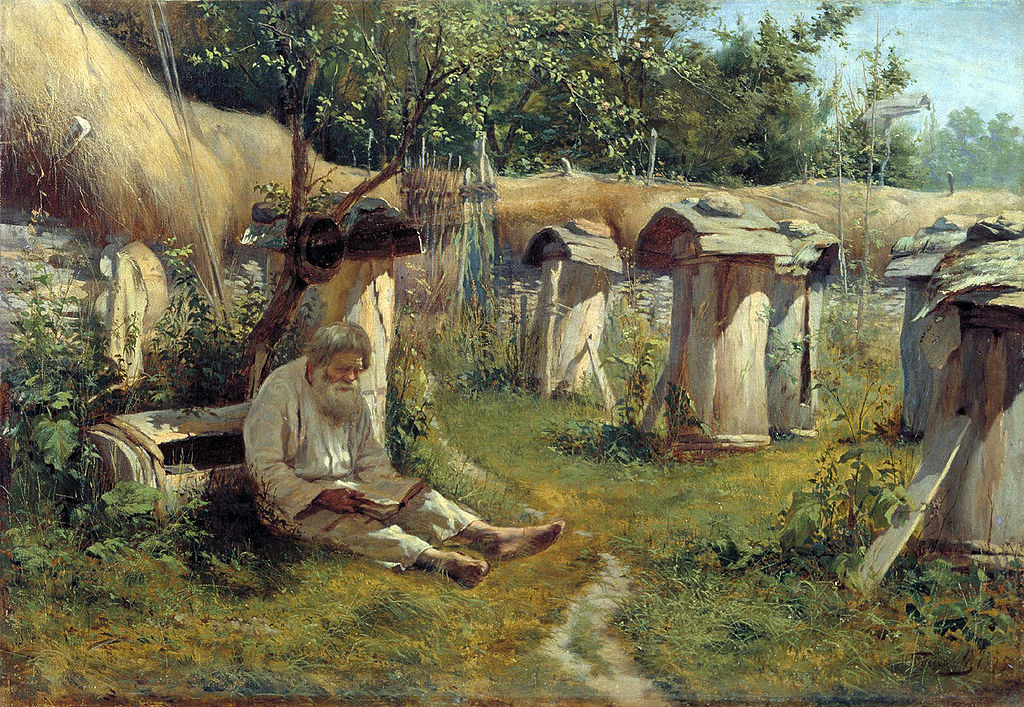We have set culture above and before life, when it ought to be behind and below – it is a reaction to life. We must stop putting the cart before the horse. (José Ortega y Gasset)
Telling people what they already know ensures belief. (Gorgias)
Universities have had their day. The grand experiment they once embarked on, of educating everyone, letting not one mind go to waste, is in its death-throes, if not dead already.
All universities worth their salt are now ardent hucksters – “Get our degree that will get you the job.” Since they have the facilities to warehouse and supposedly produce workers, they have reinvented themselves, more or less successfully, as organizations best suited to look after the supposed needs of industry.
They now sell a very attractive package: You don’t need knowledge (or what once was known as wisdom) to be successful – you need skills.
Professors are technicians who teach the structures of efficiency in the guise of a discipline.
Values (once known as virtue, or morality) are questionable at best and rightly jettisoned. The only real value in society is money. Efficiency is the watchword.
Despite lip-service, thinking is not worth the investment. Universities should in turn free themselves of the ruse of promoting knowledge and fully become training institutes for industry.
It is what students want – and according to the vise-like logic of industry, the customer is always right.
So, enough laments, enough screeds! There are too many of those already.
In the famous words of Nikolai Chernyshevsky – “What is to be done?”
We who think the Humanities are important to life need to stop depending on universities and look to other ways of establishing a new Republic of Letters. Here are some suggestions.
First, there are still enough people out there who believe that literature, philosophy, history, foreign languages (the Humanities), speculative science are essential, if democracy is going to survive in any meaningful way.
Why? Because the clearest manifestation of democracy is individual freedom. This does not mean, do what you want. Nor does it mean the freedom to consume as much as possible.
Rather, freedom demands two things: the knowledge to sustain the good society (where each person has dignity and worth); and the wisdom to ask good questions (asking questions is the highest and truest expression of individual liberty.
However, a good worker is a team player and has no need to ask questions; this builds efficiency).
How does one acquire such knowledge (knowing how and why reality does what it does) and wisdom (the extension of such knowledge to construct both a good life and a good society)? Through the Humanities and speculative science.
Again, why? Because they force us to think. And what is thinking? Simply that ability to explain reality (good or bad) – without relying on “answers” from an authority figure (for example, a search engine).
Thinking is the slow building of confidence in our own minds. It is what Bruno Snell once called, “the discovery of the mind.”
Notice how the notion of values (or morality) is creeping in – only thinking constructs freedom – because morality means having the understanding to differentiate between good ideas and bad ideas (good ideas are those that promote individual worth; bad ideas do not), and then having the wisdom to know how to replace bad ideas with good ones in society. (This has nothing to do with “raising awareness” and other emotional acts).
Second, the new Republic of Letters needs another method of patronage. The universities used to provide such patronage, but that is no longer so, since their “customers” no longer want to buy expensive, useless degrees in “bird courses.”
Therefore, the Humanities and speculative science need to rediscover an ancient model – that of the peripatetic philosophers.
To do so, they need to fully divest themselves of the university. In this way, they will also “cleanse” themselves of the dross that has accumulated over the years (especially in the Humanities).
Dross, such as, Po-Mo jargon and the tiresome micro departments that actively promote the riding of hobbyhorses. This cleansing will allow the Humanities and speculative science to “own” thinking once again.
How did those ancient Greek philosophers gain patronage? By organizing what we might call seminars in public places.
There, they presented what they knew, and what they had thought through, in a brief lecture, followed by an extensive question-and-question session, where new ideas were discovered.
The patronage came at the end of the seminar, where the peripatetic philosopher would ask the audience to give whatever monitory value they thought the lecture and discussion were worth.
It was a free-will donation – not a cost. If you thought it was all worth nothing, then you gave nothing. Again, notice how this method of patronage is deeply associated with values (morality) – good ideas are essential to the good society and they have recognizable worth.
Third, a self-sustaining and independent Republic of Letters will finally and thoroughly free both the Humanities and speculative science from the tyranny of grades which work hand-in-glove with credentialism (the entire industry of university degrees).
This also means freedom from trying to demonstrate currency and relevance through publication in journals that no one reads.
Freedom from the monolith of tenure which only embeds ‘birds of a feather” hiring practices.
And most important of all – freedom from ludicrous Po-Mo jargon that no one really understands but everyone keeps on using – even though it is now very long in the tooth.
If you’re looking for some serious Po-Mo nonsense that you can pass as your very own [a boon for graduate students and professors that need to publish fast], then here is the perfect software for you…Introducing the Postmodern Essay Generator – guaranteed to spit out essays that are impossible to understand, but sound profound).
Perfect for any Humanities course, where you have to churn out essays that no one is supposed to understand (and they’ll be too embarrassed to ask you to explain, for fear they’ll be found out that they too haven’t a clue). Here is the link to this amazing workhorse ==> Postmodern Essay Generator. (Just keep hitting Refresh to keep getting fresh Po-Mo nonsense essays).
Such is the circus that passes for an education.
The Humanities and speculative science are about thinking, and thinking is about life. The Welsh poet, W.H. Davies published a poem in 1911, entitled, “Leisure” in which he observed: “A poor life, this if, full of care/ We have no time to stand and stare.”
The need to wonder, to ask, “what if,” to feel awe, to imagine, to transcend personal conditions and shortcomings – to finally understand how to answer two of the most important questions that confront each one of us: How shall I be good? Where do I belong? Such will be the wealth of the new Republic of Letters.
This new Republic will only become possible when the Humanities and speculative science at last break free of the prison of universities and in doing so bring about the much-needed renaissance, so that democracy may once again find its true purpose – not cash but the currency of good ideas, which never lose value.

